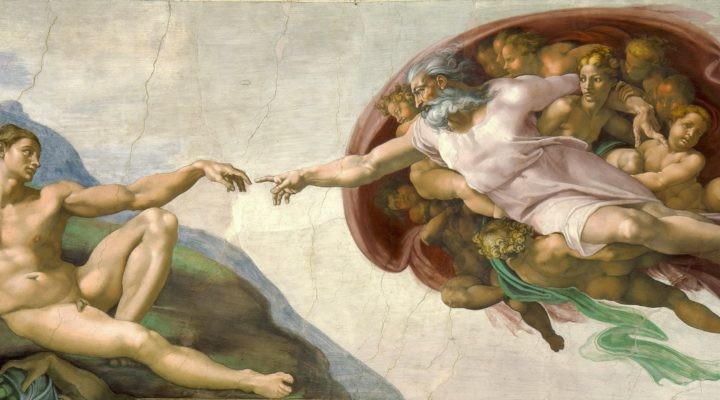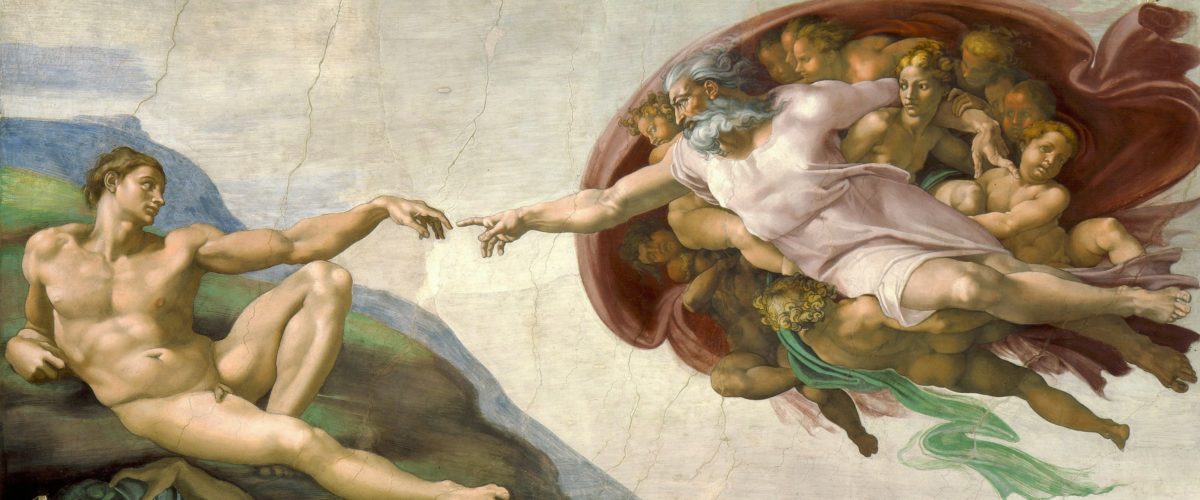The American church today needs to distinguish between what is from God and what is human and historically conditioned. We could do this by observing how people do the will of God.
Matthew 7:20-21 offers a simple biblical solution — that we will be known by the fruit we produce and that those who do the will of God will enter the kingdom of heaven.

Gavril Andreicut
When people disregard Jesus’ and Scripture’s teachings on repentance, love and justice and instead focus more on structures, they disregard what is from God and emphasize what is human and historically conditioned.
This may be seen in three kinds of idolatry:
First, when we fail to realize that Christianity is a matter of faith and that the creeds and orthodox teachings are broad summaries of the basics of the faith and written to guide Christians on the way, we make some of these official teachings and doctrines idols.
Surely, the creeds must be taught to outline the faith for Christians — but they must be reflected on, and they must send us to Scripture. And the Bible, which is more an existential guide that teaches us how to relate to God and people than a book of absolute doctrine, must be read with humility and by a repentant person.
“Tradition is very beneficial, but it is not Scripture.”
Second, when we require an absolute submission to some teachings as if they were univocally supported by Scripture, we may fail to admit that they are the result of tradition. I believe tradition is very beneficial, but it is not Scripture.
The fact that we value our religious tradition is admirable, but it may become irrelevant when we ignore the Bible’s teaching of repentance, love and justice.
Third, the church is not a building, but the body of Christ and consists of people. The problem of idolatry arises when we become more interested in a building and in the administrative structures of the church than the mission of the church.
The mission of the church is to point people to God. If the church fails to do that, or if it is interested in anything else, it is not Jesus’ church. The fact that the structures in many churches are corrupt and too many church leaders are looking for their own advantages is clear from the cases of immorality and fraud we see committed by church leaders.
In addition, the position of pastor has become that of a functionary, with a vague reference to the soul. The pastor has become a person with a degree, prepared in a college or a seminary, and ready to preach.
I never have seen a pastor not ready to preach and admitting to the congregation, “My conscience does not allow me to preach to others honestly today.” The fact that the pastor is always preaching tells us that the position of the pastor is a regular job — we pay you, therefore, you must preach.
When thinking about the church as a social and political body, my mind goes to Romania. Many Romanian intellectuals who under the Communist regime opposed Christianity and aligned themselves with the Communist ideology, after the fall of Ceausescu and with the influence of the West in Romania, have suddenly become defenders of the Orthodox Church. In other words, many people, for the sake of fitting in, changed their religious views and allegiance according to the social and political changes.
So, what is Christianity to these Romanians? Is it a place of refuge in times of need, an ornament used from time to time, or a talisman used when life is not kind to us? Is it just a religious tradition that has the ability to keep the community united and focused on its traditional values and identity?
Christianity is more than that. Christianity changes community and society: however, with the invasion of the West, Christianity can hardly keep Romania united culturally.
“My simple observation is that many American Christians care more about their own religious traditions than about repentance, love and justice.”
In America, where we have a different religious and social structure, Christianity is a very diverse body rooted in the Reformation and its aftermath. My simple observation is that many American Christians care more about their own religious traditions than about repentance, love and justice.
Repentance brings humility, love and justice, but that too often is not the case in America. The spirit of Frederick Douglass’s words, although written for a particular situation in the 19th century, may generally apply today:
The man who robs me of my earnings at the end of each week meets me as a class-leader on Sunday morning, to show me the way of life, and the path of salvation. He who sells my sister, for purposes of prostitution, stands forth as the pious advocate of purity… . We see the thief preaching against theft, and the adulterer against adultery. We have men sold to build churches, women sold to support the gospel, and babes sold to purchase Bibles … . The dealer gives his bloodstained gold to support the pulpit, and the pulpit, in return, covers his infernal business with the garb of Christianity. Here we have religion and robbery the allies of each other — devils dressed in angels’ robes, and hell presenting the semblance of paradise … . I hold it to be strictly true of the overwhelming mass of professed Christians in America.
American Christianity is the result of a long tradition that has done many wonderful things for others. But American Christians wrongly distinguish between their religious life and their social and political life, between church and business. This should not be so. Paul tells us that to be in Christ means that the whole view of the world has changed; consequently, since Jesus is the most important reference, Christians do not compartmentalize their lives according to their interests.
Repentance should bring unity among Christians, but this is not the case in America. No Christian group would give up centuries of history and its own legacy for the sake of unity. Indeed, only a disaster would make possible such a prospect.
Jesus is making unity the mark of his true disciples. In a hostile world, they must be one and he prays to his Father to keep them one. In addition, according to the Bible, those who are God’s are animated by the same Spirit, which means that they act with the same mind and in the same way.
This certainly is not a complicated theology — Christians must act according to the mind and Spirit of Jesus. And since we teach it, we must practice it.
It seems simple, very simple, but it also may seem an unrealistic goal. We prefer our will to God’s will, although we pray, “Your will be done.” However, if we do not repent and change, we may worship structures, not God.
Gavril Andreicut teaches theology at Saint Xavier University in Chicago. He also is a visiting professor at the Baptist Theological Seminary in Bucharest, Romania.


